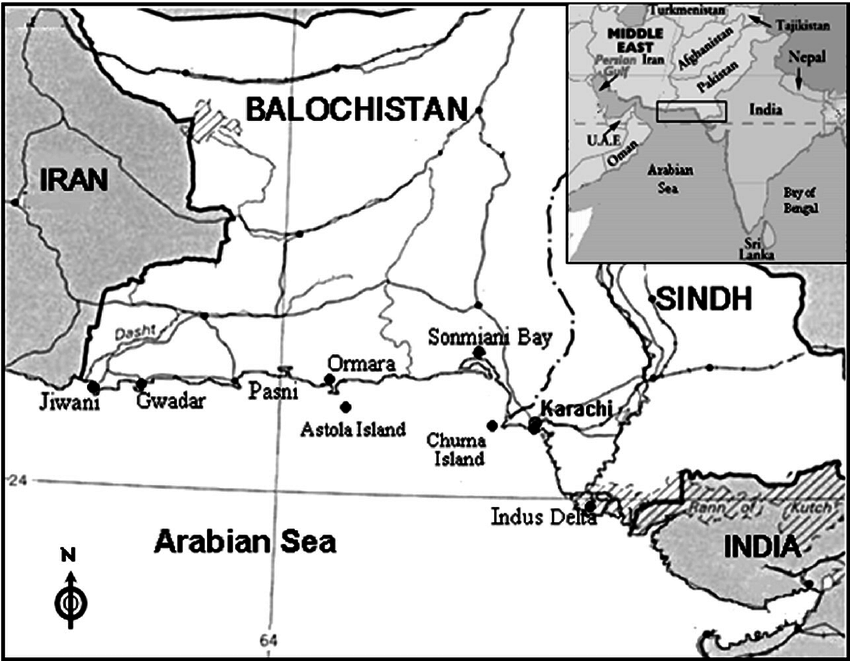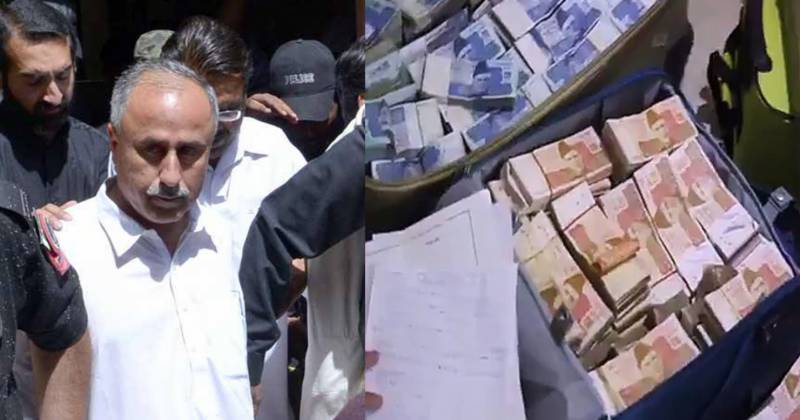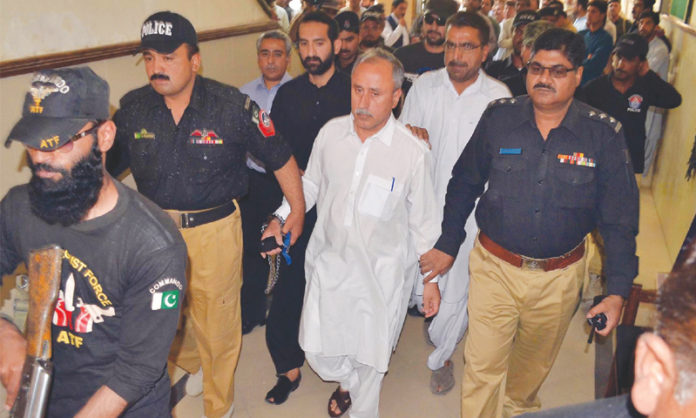Introduction
Had resource-rich Balochistan not been plagued by massive corruption and cronyism, the province would have been the most developed federating unit in the country. After NAB’s recent plea bargain with the former finance secretary, it seems that the entrenched corruption, nepotism and bad governance will continue to aggravate the economic depravity, political instability and fragile security of Balochistan.
NAB’s Plea Bargain and its Impacts
NAB was widely applauded when it had seized bags of money, bonds and foreign currency worth over Rs.730 million from former finance secretary Mushtaq Raisani’s Quetta house in May last year. After the in-depth investigation, it was found that the corrupt bureaucrat also owned a dozen houses in Karachi worth around Rs.2 billion. The finance secretary was accused of embezzling billions of rupees from the funds of the toothless and under-resourced local government of Balochistan.
After NAB’s raid, the disillusioned people of Balochistan took a sigh of relief that the accountability bureau would rid their province of gigantic corruption, nepotism and blatant pilfering of natural resources. However, the controversial plea bargain of NAB has flabbergasted them, and now they suspect the seriousness of NAB and the federal government in terms of cleansing the province of corruption and nepotism.
After thorough investigation the Executive Board Meeting (EBM) of NAB estimated Mr. Raisani’s corruption figure at Rs.40 billion. Out of the blue, now the EBM has accepted the plea bargain of just only Rs.2 billions of Mr. Raisani and Sohail Majeed Shah, the contractor and front man of Khalid Lango former advisor to the chief minister Balochistan. This ill-conceived decision has set an ill-boding precedent in corruption-infested Balochistan. Presumably, the plea bargain will encourage fortune-seeking politicians and bureaucrats to further misappropriate the province’s depleting resources rather than curb the menace of mega corruption. In a nutshell, NAB’s decision is tantamount to showing the safe door of amassing ill-gotten money to crooked politicians and civil servants so that they continue doling out the resources of Balochistan.
Almost all public departments and institutions of Balochistan are gripped by persuasive corruption and misapplication of development funds. However, NAB has confined its accountability dragnet to the former finance secretary and his accomplices. The question remains: Who will bring to book the rest of corrupt politicians and bureaucrats in the province?
As per credible reports, billions of rupees were blatantly misappropriated by the government of Aslam Raisani from 2008 to 2013. He made illegal appointments to the Quetta Electricity Supply Company (Qesco) with the support of former premier Raja Pervaiz Ashraf and violated the rules in the appointments of three tehsildars in different cities as well.
With this looted amount he has established businesses and is currently living a luxurious life in the scenic city of Islamabad. During his tenure Balochistan did not make any headway but further regressed on political, socio-economic and educational fronts. Sadly, terrorists and militant outfits such as Lashkar-e-Jhangvi (LeJ) capitalised on Raisani’s bad governance by mercilessly massacring a large number of hapless Hazaras. Being the sole accountability bureau, NAB is responsible for recovering and returning this hefty amount to the cash-strapped Balochistan.
The National Party’s leader — Dr. Abdul Malik Baloch — was nominated as chief minister of Balochistan after the May 2013 elections. He appointed Mushtaq Raisani as secretary finance and Khalid Lango as finance advisor. It is unthinkable that a bureaucrat and an advisor could preside over a vast provincial and inter-provincial corruption network without the knowledge and collusion of their political superiors.
It is beyond any doubt that the former nationalist government was complicit with Mr. Raisani and Mr. Lango in squandering the resources of Balochistan. It is a pity that the PML-N has clipped the wings of NAB so that it cannot unearth the massive corruption scandals of the so-called nationalist government.
The former chairman of the Balochistan Public Service Commission (BPSC), Ashraf Magsi, kept selecting politically favourite candidates to posts of grade 17 and over for quite a long time. Magsi issued fake certificates to his two daughters, a son and a woman for acquiring key posts in government departments. He was also reported to have misused funds worth millions of rupees. The erstwhile provincial government of Aslam Raisani and the former governor kept pressurising Mr. Magsi for selecting their candidates to different posts. No concrete measures have been taken to recover the pillaged money and cancel the illegal postings made by Mr. Magsi.
Despite receiving over Rs.1200 billion from Islamabad since 2008, Balochistan is still the most backward province in the country. It badly lacks a satisfactory educational, transport and healthcare infrastructure. Powerful provincial politicians along with like-minded bureaucrats have either diverted this sizeable amount into their secret bank accounts or buried it under their houses as Mr. Raisani did. It is sad to note that both the Supreme Court and Balochistan High Court have so far remained silent spectators, watching unbridled embezzlement of provincial resources.
On account of corruption and mismanagement of Balochistan’s resources, the literacy rate of the province is stagnant at 44 percent. Most educational institutions are bereft of basic facilities, not having educated or trained teachers able to impart quality education. The students from Balochistan thus cannot compete with those of Sindh, Punjab and KP in the CSS and other competitive examinations.
Much of the provincial budgetary allocation to education is systematically embezzled and diverted to bank accounts of influential politicians and bureaucrats. Lack of quality education, technical training and job opportunities has compelled over 71 percent of Balochistan’s population to live in multidimensional poverty. A large number of people do not have access to potable water, basic healthcare facilities and electricity.
The controversial plea bargain of NAB does not bode well for the economic prosperity of Balochistan. The province is rich in precious natural resources such as gold, copper and gas and possesses an exceptional geo-strategic and geo-economic location. More importantly, the mega seaport of Gwadar is also located in the province; Gwadar is projected to be the trade hub of South Asia, Central Asia and the Middle East in the near future.

Balochistan’s Strategic Importance
Balochistan is Pakistan’s largest federal unit in terms of area spreading over 347,190 Sq Km with 770 km coastline, which forms almost 44 percent of the total area of Pakistan but it is least populated in terms of population with nearly 10 million people. It is important in terms of geo-strategy and geo-politics due to its proximity to the world’s most important shipping route, the Strait of Hormuz, through which roughly 40 percent of the world’s petroleum passes. Balochistan’s Gwadar Port has nearness to the Middle East which, according to the British Petroleum (BP) 2012 Statistical Review of World Energy, possesses 48 percent of the world oil and 38 percent of natural gas reserves. Balochistan, too, provides the nearest port access to the landlocked mineral-rich Afghanistan that possesses mineral resources worth $3 trillion, according to the Afghan government estimates, and oil and gas rich Central Asian Republics (CARs) where only Kazakhstan and Turkmenistan have 3.6 billion barrels of proven oil and 663.8 trillion cubic feet of proven natural gas reserves. Kazakhstan also possesses 33.6 billion tons of coal reserves as per British Petroleum’s 2013 Statistical Review of World Energy. Lastly, Balochistan also shares borders with Iran that owns 157 billion barrels oil and 1,187.3 trillion cubic feet of proven natural gas reserves.
Significantly, the Gwadar deep sea port offers the world’s second largest economy, China with an inexpensive, closer and less perilous access to Africa, the Middle East and economically integrated Europe via the Suez Canal thus fostering tremendously Sino-Pak bilateral relations. In addition, the province itself is rich in precious mineral resources such as copper, black pearl, oil stones, coal, chromites and natural gas. In particular, Reko Diq a small town in Balochistan’s Chagai district possesses 2.2 billion tonnes of gold and copper worth hundreds of billions of dollars.
Major Problems of Balochistan
Despite being the richest province of Pakistan in terms of natural resources, its inhabitants are living in abject poverty; it has the lowest literacy rate and the highest mortality rate in the country. In short, its human development index is unspeakably lowest in all over Pakistan.
Educational Backwardness
Balochistan is backward in terms of qualitative education. According to Dawn, the literacy ratio of the province is dismally low at 39 percent and female literacy rate in certain districts is as low as less than 1 percent. A large number of children aged between 5 and 16 are out of school. Alif Ailaan, a non-profit organisation working on education in the province, puts this number at 66%. Alarmingly, 42 percent of 10 to 18-year-old girls have never attended school. Moreover, Balochistan is lacking in an adequate number of schools and trained teachers in order to increase both quantity and quality in this field. According to Sardar Raza Muhammad Bareech, the Adviser on Education to the Balochistan Chief Minister, there are 12,500 primary, secondary and high schools in the province where over 22,000 teachers are involved in educating children. Around 7,000 of these schools have only one teacher and one room for grade one to grade five.
Most schools are in dilapidated condition and bereft of required facilities i.e. scientific equipment, adequate classrooms, clean drinking water, play grounds and toilets. Moreover, a large number of teachers lack requisite qualifications and relevant training. To exacerbate this, many teachers get recruited either by favouritism or by paying money. Further, unchecked corruption, absenteeism, lack of job satisfaction, closure of schools by recurrent strikes, existence of thousands of ghost teachers, hold sway. Control of landlords over schools and poor socio-economic conditions of parents are some of the major problems confronting education. Resultantly, uneducated or half educated youth fail to grasp their fundamental constitutional rights, and presumably vote for corrupt, incompetent and influential politicians who in return flagrantly plunder the rich provincial resources, thus obstructing the predetermined socio- economic progress.
Bad Governance
Balochistan’s political system has failed miserably in providing the people with good governance on account of a host of deeply rooted factors. To begin with, all its democratic set ups including the recently elected local bodies were systematically selected in a non-transparent manner. Also, corrupt, incompetent, maverick and traditional politicians and powerful landlords heavily bank on influence and considerable black or looted money to purchase votes, thereby successfully coming onto the saddle; thus obstructing the politically literate youth to penetrate in the unworkable politics of the province. To worsen this grim situation, the federal government and the military leadership still call the main shots on legislative, political, economic and security fronts.
In a nutshell, the provincial politics is beset with multifaceted and widespread corruption, unbridled misappropriation and plundering of provincial money and depleting resources, nepotism and favouritism in key bureaucratic posts, the politicization of a lax and servitude bureaucracy, bureaucratic red tape and obstructive and troublesome feudalism. Consequently, the provincial political system has dismally unravelled, bringing about bad governance and staggering backwardness of the people, and resultantly stimulating low-intensity insurgency in the province.
Economic Issues
The province is also faced with entrenched economic issues. Despite possessing potential of natural resources worth trillions of dollars, Balochistan is still the most backward area. According to Dawn, the unemployment ratio is appallingly high: almost 33 percent people in Balochistan are out of any kind of job. According to a report titled ‘Clustered Deprivation’, published by the Sustainable Development Policy Institute, 52 percent people of Balochistan are living below the poverty line. This means more than half of the people in Balochistan cannot earn even $1.25 per day. According to the National Nutrition Survey of 2011, sixty-three percent people of Balochistan are suffering from food security. A meager amount is spent on needed development projects as reflective from the provincial budget of Rs.215 billion for the fiscal year 2014-15. Amazingly, 77 percent of this budget was spent on non-development programmes.
Over 50 percent of the province’s population has no or little access to good education, healthcare and has woefully poor living conditions with no proper arrangements for sanitation and no supply of potable water or electricity.
Balochistan lacks appropriate road and rail infrastructure for trade and investment. Most industries are owned by either the politicians or big landlords in which forced and bonded labourers work in shabby and inhumane conditions with meager wages. Further, its strategically important littoral areas are a major and busy hub of international drug trafficking and smuggling of Iranian oil. As per UNODC’s World Drug Report 2012, almost one-third of the drugs worth an estimated $30 billion produced in Afghanistan are smuggled to the rest of the world mostly via the coastal areas of Balochistan, and 0.28 million young Baloch are drug addicts. Such illicit business helps the black marketers amass substantial wealth to the detriment of the faltering provincial economy and injecting drugs into the youth. Alarmingly, terrorists, insurgents are also engaged in garnering money to continue their missions.
The Way Forward
To sort out these deeply seated issues of Balochistan, apart from some half-hearted and negligible economic measures, the body politic has largely relied upon military operations to crush and quell pervasive dissent and contain the simmering insurgency. Now it is imperative to begin introducing far-reaching political, economic educational and security-related reforms with a mechanism of proper checks and balances.

Scraping the Plea Bargain
The Supreme Court should intervene in a timely manner and direct NAB to scrap the plea bargain concept with the former finance secretary and his accomplices. After recovering the stolen money in full, all corrupt officials should be stringently punished so that others in the bureaucracy and politicians learn lesion and think twice about plundering the resources of Balochistan. NAB should also commence investigations into the alleged corrupt practices of former provincial set-ups of the PPP and the National Party.
Reforming the Provincial Police
To begin with, both federal and the provincial set up should embark upon reforming the toothless 38,000 strong police force of the province. It is imperative to supplement police numbers by inducting educated youth through competitive examinations and proper vetting. The police should also be provided with modern training, equipped with sophisticated weapons, armored vehicles and helicopters. It must be completely depoliticized. Lucrative salary packages with acceptable medical and educational amenities should also be given so that personnel are able to live a decent life and shun corrupt practices. Around the clock basic intelligence coordination with premier intelligence agencies should also be ensured. To boost its morale, effectiveness and efficiency, honest, valiant and competent personnel and officers should be rewarded with promotion and awards.
Introducing Good Governance
Democratic political reforms meant to instigate good governance are also badly needed. For viable, workable and result oriented democracy, elections for the provincial assembly and local bodies should be transparent, participatory, fair and inclusive for the willing educated youth. Equally significant, the obstructive sway of affluent landlords and dynastic politicians must also be cut down. To hinder massive political corruption and irregularities, the FIA and the provincial judiciary needs to be reformed and fully empowered to clamp down upon loot and plunder of development funds by keeping a vigilant eye on politicians and lethargic bureaucracy. The central government, too, should refrain from needlessly interfering in domestic politics of the province.
Educating the People
To educate people is equal to resolving all provincial adversities. In this regard, new educational institutions equipped with necessary wherewithal should be immediately established. Special arrangements for higher education such as establishing modern colleges and universities and providing adequate seats to students with reasonable financial assistance are required. Issues of the ghost schools numbering 3,500 in 2009 and politicized ghost teachers should be solved; parents should also be encouraged to get their daughters educated. The private sector must be induced into investing educationally in Balochistan and extra measures for qualitative technical education meant to make the youth skilful must be taken with adequate job facilities for the graduates to be arranged by the process of small and medium level industrialization.
Reforming and Regulating the Provincial Economy
Lastly, prudent economic reforms are also required to bring the province at par with the rest of Pakistan. Adequate road and rail infrastructure should be built, the China-Pakistan Economic Corridor is a good start. The Gwadar deep sea port should be made fully operational as soon as possible and skilled and educated locals should be inducted and both small and large-scale industrialization should be commenced to tap and exploit regional natural resources. National and international private investors should be lured into investing in Balochistan and in this regard, bureaucratic red tape and security issues should be minimized.
The Provincial fish market of 155,000 tonnes excluding those smuggled to Iran should be regulated, facilitated and properly taxed, the unchecked smuggling of fish to neighboring Iran must be stopped. Stringent measures must be taken to hinder drug smuggling via Balochistan’s littoral areas. A potent dragnet against ministerial and bureaucratic corruption should also be spread and the politicized provincial bureaucracy must be reformed for good governance and effective administration.
Conclusion
A federation is strong and effective when all its federating units are treated justly, politically and economically. Unfortunately, the federal polity in Pakistan treats Balochistan as a subservient and inferior province which has so far produced only armed insurgencies and bitter resentment. For the sake of a viable and powerful federalism, it is the need of the hour to identify all socio-economic, political and security-related issues and plan to resolve them.




